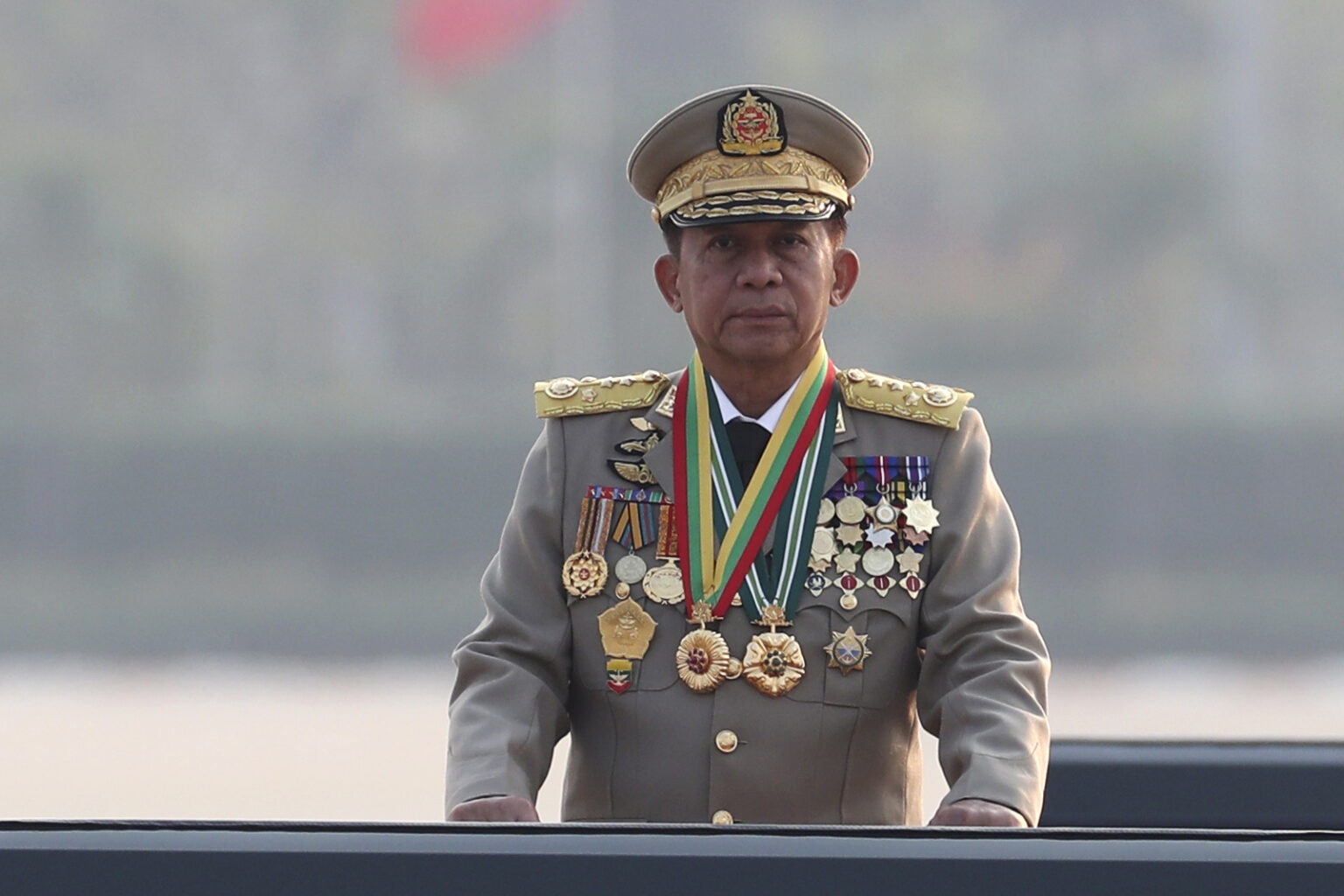The International Criminal Court’s top prosecutor has formally requested an arrest warrant for Myanmar’s military chief, Senior Gen. Min Aung Hlaing, over crimes against humanity targeting the Rohingya Muslim minority.
This marks a significant step in seeking accountability for atrocities committed during the military’s 2017 campaign against the Rohingya.
Allegations of Ethnic Cleansing
The charges against Hlaing stem from what has been described as an ethnic cleansing campaign that began in August 2017.
Nearly a million Rohingya were forced into Bangladesh following a brutal crackdown involving mass killings, rapes, and the destruction of entire villages. Hlaing, leader of the Myanmar Defense Services, is accused of orchestrating attacks by both military and police forces on Rohingya civilians.
Karim Khan, the ICC prosecutor, issued a statement from a refugee camp in Bangladesh, emphasizing that “the Rohingya have not been forgotten.” He pledged further action, stating his intention to seek additional arrest warrants for Myanmar’s leadership.
Global Reaction and Justice Advocacy
Human rights groups have welcomed the move. “The ICC prosecutor’s decision to seek a warrant against Sr. Gen. Min Aung Hlaing comes amid renewed atrocities against Rohingya civilians that echo those suffered seven years ago,” said Maria Elena Vignoli of Human Rights Watch. She called the request an “important step toward breaking the cycle of abuses and impunity.”
Myanmar’s opposition National Unity Government also expressed support. Foreign Minister Zin Mar Aung urged ICC judges to issue the warrant swiftly and called on governments to act on it, describing the development as “a critical moment in Myanmar history.”
Despite widespread international condemnation, Myanmar’s military regime has shown little indication of cooperating. A spokesperson for the regime, Thet Swe, did not immediately respond to requests for comment.
ICC Jurisdiction and Next Steps
While Myanmar is not a member of the ICC, neighboring Bangladesh is. This jurisdictional link allows the court to investigate crimes committed partly on Bangladeshi soil, including the forced deportation of Rohingya refugees.
In 2019, the ICC approved investigations into crimes related to the Rohingya, paving the way for the current case.
The request now goes to a panel of three ICC judges who will decide whether sufficient evidence exists to issue a warrant. There is no deadline for a ruling, as similar cases have varied in processing times.
The ICC’s actions come amid escalating challenges for Myanmar’s military government, including intensified clashes with ethnic militias and the loss of key territory to rebel groups. In parallel, the International Court of Justice is pursuing a separate genocide case against Myanmar brought by Gambia.
This multifaceted legal push highlights the growing global pressure on Myanmar’s military leadership for accountability.
This article includes reporting from The Associated Press
Read the full article here

